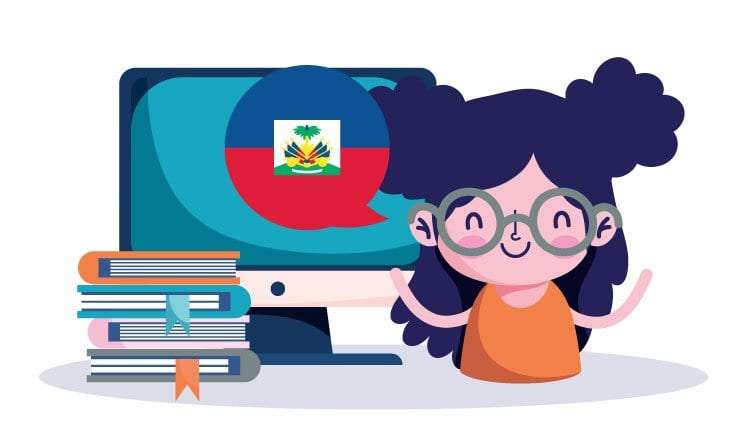Are you looking for a Haitian Creole translator in West Palm Beach, FL? Look no further! In this blog post, we will discuss the importance of a Haitian Creole translator, the benefits of hiring one, and tips on finding the right translator for your needs.

What is the Creole language in Florida?
Creole language in Florida refers to a group of languages that developed as a result of linguistic mixtures between African, European, and Native American languages. The Creole language spoken in Florida is mainly referred to as Florida Creole, or Gullah, and is spoken by some communities in North Florida.
What language is Haitian Creole?
Haitian Creole is a language derived from French and African languages that is spoken mainly in Haiti. It has also become a significant part of the Haitian diaspora, notably in North America.
How many speakers does Haitian Creole have?
Haitian Creole is spoken by approximately 12 million people worldwide, mostly in Haiti, but also in the United States, Canada, and the Dominican Republic.
Why hire a Haitian Creole translator in West Palm Beach, FL?
- Communication: If you are working in a business or healthcare setting that serves a Haitian-Creole-speaking population, communication is essential. A translator can bridge the communication gap and ensure that important information is conveyed accurately.
- Cultural Competence: Working with a translator ensures that you are receiving culturally competent services. The translator can help navigate any cultural norms or values that may impact communication or understanding.
- Legal Requirements: In some cases, hiring a translator may be a legal requirement. For example, healthcare providers are required to provide interpretation services to patients who speak a language other than English.
Benefits of Hiring a Haitian-Creole Translator
- Increased Access to Services: Hiring a Haitian-Creole translator can increase access to services for Haitian-Creole-speaking individuals. This can include access to healthcare, legal services, and educational opportunities.
- Improved Outcomes: Improved communication and cultural competence can lead to improved outcomes. For example, healthcare providers who work with a translator may see improved health outcomes for their patients.
- Compliance: Working with a Haitian-Creole translator can help ensure compliance with legal and regulatory requirements.
Finding the Right Haitian-Creole Translator
- Look for a qualified translator: Look for a translator who is certified or accredited by a professional organization.
- Experience: Look for a translator who has relevant experience working with Haitian Creole speakers.
- Local Knowledge: Look for a translator who has knowledge of the local community and customs.
- Testimonials and Reviews: Research the translator’s reputation through online reviews and testimonials.
What are the top 3 most spoken languages in Florida?
English, Spanish, and Haitian Creole are the top three most spoken languages in Florida. Additionally, other languages such as French, Portuguese, and Chinese are also spoken throughout the state.
Where is Haitian Creole spoken in the US?
Haitian Creole is prominently spoken in densely populated Haitian communities in southern Florida, particularly in cities such as Miami, Fort Lauderdale, and West Palm Beach. It is also spoken in other areas of Florida, as well as other states such as New York, Massachusetts, and New Jersey.
Is Haitian Creole easy to learn?
Haitian Creole can be challenging to learn because of its French-derived vocabulary and unique grammar. However, it is not impossible to learn with dedication and practice, and many resources are available to assist in learning the language, such as language immersion courses and language-learning apps.
Conclusion
In conclusion, hiring a Haitian Creole translator in West Palm Beach, FL can provide a number of benefits. Improved communication, cultural competence, and compliance are just a few of the benefits. We hope you enjoyed the blog post of Languages Unlimited about Haitian-Creole Translator in West Palm Beach, FL. When looking for a translator, it is important to consider their qualifications, experience, local knowledge, and reputation. Working with a qualified translator can lead to improved outcomes for both the service provider and the Haitian-Creole-speaking individual.

